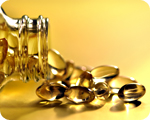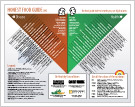
(Natural News) Carbon monoxide (CO) is a colorless, tasteless and odorless gas found in the fumes of various fuels that contain carbon like wood, gasoline and coal. Inhaling these fumes can lead to carbon monoxide poisoning. According to the Centers for Disease Control and Prevention (CDC), unintentional CO poisoning is responsible for more than 400 American deaths per year, making it the second-leading cause of poisoning death in the US.
Because of its characteristics, it’s difficult to determine if you have been exposed to CO until it’s too late. Here are the signs and symptoms of CO poisoning and how to address them. (h/t to PreppersWill.com)
Subtle but deadly
You are at a high risk of CO poisoning when a large amount of the deadly gas is present in the air. The actual poisoning, however, happens if you inhale it. Plenty of sources have the potential of releasing CO, including cars, lawnmowers, stoves, furnaces, grills, lanterns and even clothes dryers. The threat of CO poisoning is especially high in enclosed spaces with poor ventilation.
When CO is inhaled, it enters the bloodstream and attaches itself to hemoglobin – part of the red blood cells responsible for carrying oxygen around the body. This process creates a compound called carboxyhemoglobin and no exchange of gases occurs when a cell with this compound reaches an oxygen-deficient cell. As exposure to the gas continues, more and more hemoglobin gets hijacked by this deadly gas and the blood slowly loses its ability to carry enough oxygen to meet the body’s needs. When the body lacks oxygen, individual cells start to suffocate and die, especially in important organs like the brain and heart.
The most common symptoms of CO poisoning include:
- Confusion
- Dizziness
- Headache
- Breathing difficulty
- Vomiting and nausea
- Weakness
Excessive and continuous exposure to CO can lead to unconsciousness, potentially leading to death by asphyxiation. Inhaling CO can also lead to other long-term complications like brain damage, heart damage and organ damage. If you find yourself exposed to a source of CO for a long period, it is wise to rush to the nearest hospital to get treatment.
However, there will be times when a hospital isn’t close enough and a victim of CO poisoning needs assistance as soon as possible. The first thing you should do when dealing with a suspected victim is to attempt to remove them from the toxic environment. But, before playing the hero, you need to remember to protect yourself from the harmful effects of CO by donning a self-contained breathing apparatus to help prevent inhalation of CO. The head of the victim should also be elevated to reduce cerebral edema or swelling of the brain.
If the patient is conscious, the best way to treat CO poisoning is to let them inhale pure oxygen. This can be done by letting the victim wear a mask attached to an oxygen reservoir. The patient’s clothing should be loosened. They should also be kept warm at all times so they can utilize the remaining unaffected hemoglobin efficiently.
You can also take preventive measures to avoid CO poisoning. One such method is to ensure plenty of ventilation in areas with potential sources of CO. If you use such appliances at home, getting a CO detector can help you nip the poisoning in the bud and get it fixed before it becomes a problem. You should also avoid falling asleep or sitting for long periods in an idling car within an enclosed space. (Related: Prevent carbon monoxide poisoning this winter: Expert provides tips in wake of multiple illnesses (and a death) in New Jersey.)
CO poisoning can be a silent but deadly killer. However, with proper preparation and knowledge of the potential signs and symptoms, you could avoid the problem altogether. Learn more about other subtle things that could threaten your lives at Survival.news.
Sources include:


















